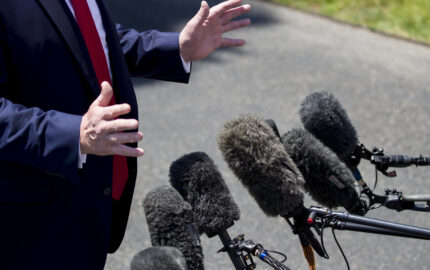Among journalism’s many failings in this election, our greatest, I think, is this: We in liberal media (let’s admit that much, at least) abandoned and, in turn, were abandoned by conservative Americans. They do not trust us. Thus we could not inform them. We left a void that was readily filled in by fake news factories, including Fox News (which brainwashed my own parents; I’ve seen the results), Breitbart, Drudge, and countless meme-makers who learned how to use social media to insert themselves into voters’ conversations.
To begin to fill this void instead with responsible, reasonable, fact-based journalism, I will argue in favor of investment in new, conservative media. Of course, I’ll also argue that other underserved communities—African American, Latino, LGBTQ, disabled, to name only a few—also deserve such direct and relevant service. But it was angry, white voters who bred Trumpism, so they, too, need attention—urgently.
As journalists and news organizations, we must begin by listening—and let’s be honest about this, too: We’re not good at listening in our field. This is why, at CUNY, we started a new degree in social journalism, to teach journalists to understand and empathize with a community’s needs before bringing content and our many other new tools to the task of informing them. Once we reliably reflect a community’s worldview and serve its needs, only then can we begin to earn back its trust and have any hope of informing that worldview.
Then we need to use whatever media convening power we have left to bring together communities—conservative, liberal, white, black, Latino, immigrant, unemployed, evangelical, old, young, gun owner, gun victim ... —who fear but do not know each other so that we can promote, inform, and improve civic discourse. We must build diversity in our newsrooms to enable this. We must build diversity in the news ecosystem to serve communities, no longer the mass. And we have the opportunity to build connections across these communities for greater understanding.
As if these tasks were not challenging enough, we must also, of course, reinvent our business model so we are not still dependent on mass-media economics, still addicted to scale for its own sake. Follow the money and it leads to Donald Trump, who was the clickbait candidate, the perhaps inevitable culmination of mass media, of amusing ourselves to death. We must find new models that support relevance over reach, value over volume. The way to do that is to better serve communities, including Trump’s, so they have facts to inform their conversations and actions. That way, perhaps, they will value journalism again.




